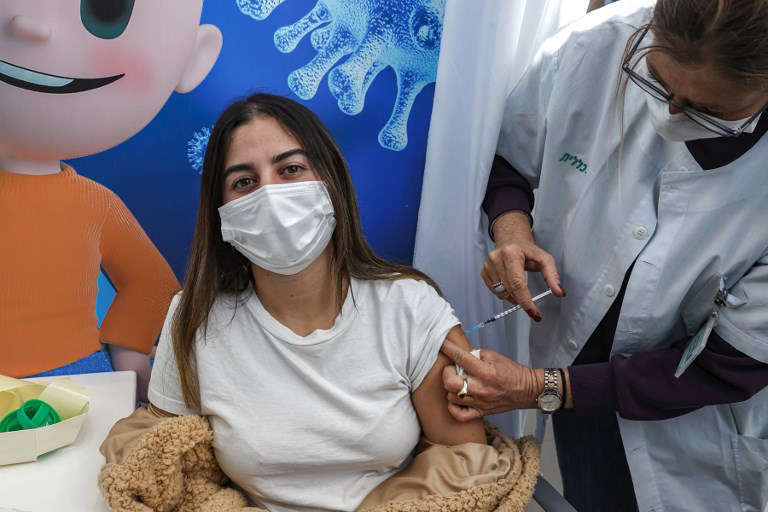The second dose of Pfizer/BioNTech's coronavirus vaccine can reduce the risk of both hospitalisation and death by more than 95% from seven days after vaccination, a nationwide study by Israel's Ministry of Health and the pharmaceutical giant found.
The real-world research found a significant increase in effectiveness from the first dose, which offers 58% protection against infection, 76% against hospitalisation and is 77% effective at preventing death as a result of the virus.
"Two doses of the Pfizer vaccine are highly effective across all age groups in preventing symptomatic and asymptomatic coronavirus infection and coronavirus-related hospitalisations, severe disease, and death, including those caused by the British variant," the report, published in The Lancet journal, stated.
The study used national surveillance data from the first four months of the nationwide vaccination campaign (between 24 January and 3 April), looking at incident cases of confirmed coronavirus infections and outcomes - (a)symptomatic infection, hospitalisation or death - as well as vaccine uptake in residents of Israel aged 16 years and older.
The effectiveness of the vaccine was calculated on the basis of infections in fully vaccinated individuals (for whom seven days had passed since receiving the second dose of vaccine) compared with rates in unvaccinated individuals.
Estimates of vaccine effectiveness seven days or more after a person received a second vaccine dose found the vaccine was:
- 91.5% effective against asymptomatic infections;
- 97% effective against symptomatic infections;
- 97.2% effective against hospitalisation as a result of a coronavirus infection;
- 97.5% effective against severe or critical coronavirus-related hospitalisation, and;
- 96.7% effective against a coronavirus-related death.
"Marked nation-wide declines in the incidence of coronavirus infections and negative outcomes corresponded with increasing vaccine coverage, and these declines were sustained even after social reopening. These findings suggest that coronavirus vaccination can help to control the pandemic," the report stated.
It added that this suggests that the primary driver of reductions in coronavirus infections and outcomes was high vaccine coverage, not the implementation of the lockdown in Israel in January.
The author of the study emphasised that little is yet known about the duration of the effectiveness of the first dose. If only one dose is administered, this may mean that the duration of protection against the virus is shorter, especially in the case of variants. In general, there are also uncertainties about the duration of immunity after the second dose.
Following the emergency use authorisation of the Pfizer/BioNTech coronavirus vaccine in Israel, which is considered a model country for the analysis of vaccination data, the Israeli Ministry of Health launched a campaign to immunise its 6.5 million residents aged 16 years and older on 19 December.
As of May 4, over 62% of the total population in Israel has received at least one coronavirus vaccine, according to Our World in Data.

